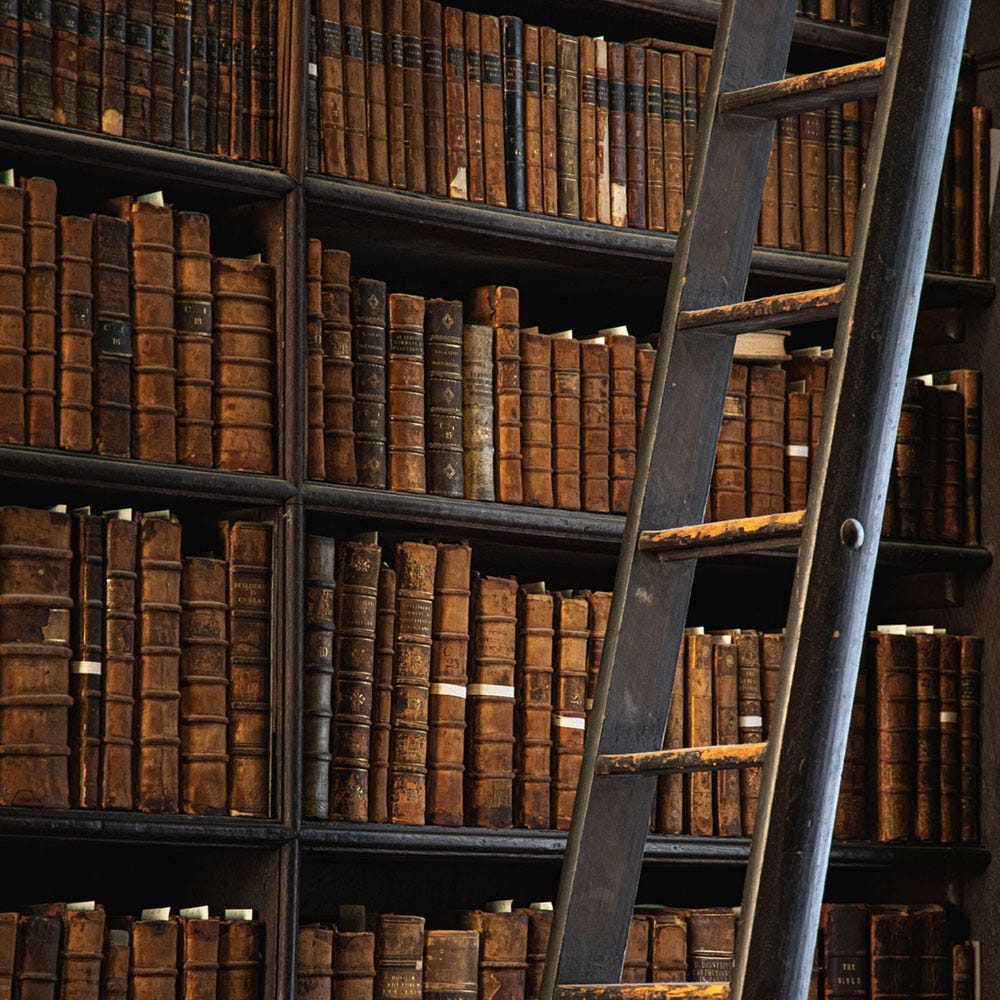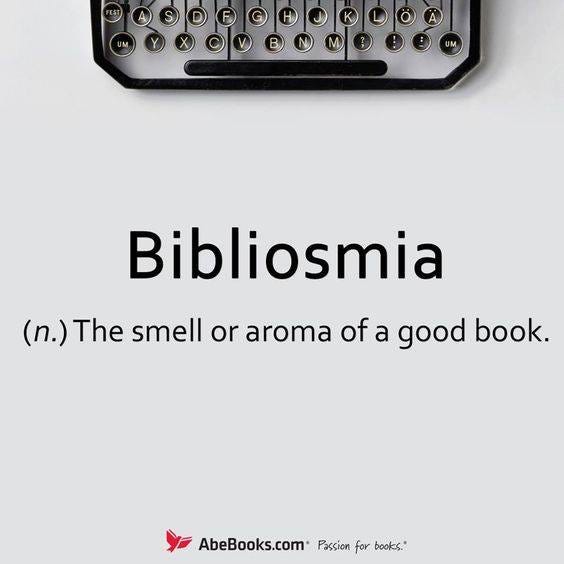Issue 23: that old book smell
A little round-up of stories about archiving, eating, and getting high on ‘bibliosmia’*
Histories are in the scent, not just the pages, of books
Cecilia Bembibre, a researcher at University College London's Institute for Sustainable Heritage, is on a mission to save our scents.
As part of her 'Smell of Heritage' project, she developed a framework to capture and identify scents of cultural significance, and archived them as a form of intangible heritage preservation.
“Smells impact the way we think, behave, and feel, they also trigger personal memories, and can be related to a feeling of identity. And yet there is no strategy in the UK to study and protect our olfactory heritage,” she said.
For her first case study, "we were looking for a smell that had significance to many people and carried historic information". The candidate? Books in the libraries of London’s St Paul’s Cathedral and the Kent country estate, Knole.
“The smell of old books and historic libraries was an ideal example, because there is quite a bit of evidence that we relate this aroma to knowledge, a pleasurable sensory experience, and personal memories.”
At the heart of Bembibre’s project was the desire to ensure significant smells – those olfactory indicators of cultural identity – were recorded and protected, for our own, as well as history’s sake.
“Smells can be fundamental in shaping who we are and where we belong. In the heritage context, experiencing what the world smelled like in the past enriches our knowledge of it, and, because of the unique relation between odours and memories, allows us to engage with our history and our culture in a more emotional way.”
Libraries can expand your mind in more ways than one
A British mycologist says that old books – particularly those stored in less than perfect conditions – can provide inspiration without the need to read even a single word. Just take a deep breath.
In his Lancet journal paper, ‘Sick Library Syndrome’, Dr R J Hay wrote that fungal growth on books could induce hallucinations and lead to the “enhancement of enlightenment and artistic endeavours”.
“The source of inspiration for many great literary figures may have been nothing more than a quick sniff of the bouquet of mouldy books,” he said.
But there is a caveat – while other fungus experts have confirmed the premise of Dr Hay’s results, they say it would take more than just a quick whiff to inhale enough hallucinogenic spores to seriously affect behaviour. And as yet, no study has been undertaken to determine how many mouldy books you would need to smell, or for how long, to get sufficiently high.
When science, art, and ice cream meet
Pastry chef Jordi Roca is one third of the team of brothers behind the award-winning El Celler de Can Roca restaurant, and founder of the Willy Wonka-esque Rocambolesc ice cream parlour.
In his pursuit of ever more unusual ideas and tastes, he developed a technique to extract the smell of old books to infuse his recipes.
The process involves smearing a book in fat to absorb its scent, the fat is then dissolved in alcohol, distilled, and the 'essence of book' oil extracted by centrifuge.
One of Roca’s resulting creations is puffed pastry of butter cookies, cream of Darjeeling tea, old book essence, and lemon madeleine ice cream. It is served between sheets of rice paper printed with text from Marcel Proust’s 'In Search of Lost Time' – a passage in which he describes a memory of eating a madeleine cookie.








